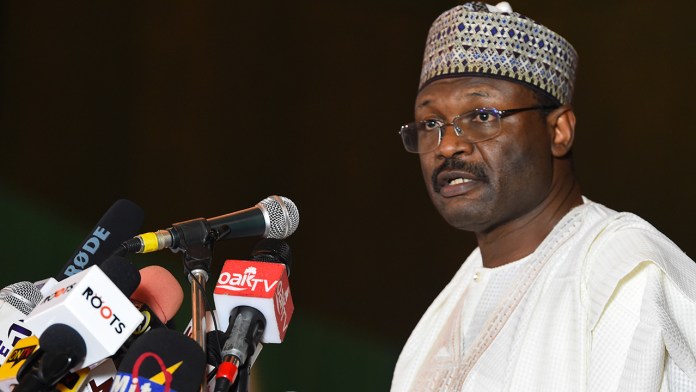
Resident Electoral Commissioners (RECs) have been banned by the Independent National Electoral Commission INEC (INEC) from visiting government houses.
The commission also told the RECs not to hold unofficial meetings with politicians, even after official working hours.
Chairman of INEC, Prof. Mahmood Yakubu, who announced the ban on Thursday at the swearing-in of 19 newly appointed RECs stated that “all matters pertaining to official responsibilities should be conducted in the office attended by the relevant staff and properly documented.
“This is your best protection against mischief. Do not compromise the neutrality of the commission or create the perception of partisanship.
“You owe nothing to any individual but owe everything to the Nigerian people. We must continue to ensure that the choices they make on election day prevail. It is their decision. We are only administering the process in trust supported by technology.”
Prof. Yakubu said the commission’s loyalty and allegiance is to Nigeria and Nigerians, noting that only Nigerian votes would determine winners in the 2023 general elections.
The INEC re-stated that the only means of voter accreditation during the 2023 general election is the Bimodal Voter Accreditation System (BVAS) while results would be uploaded to the INEC Results Viewing Portal (IReV) in real-time on election day as provided by law.
According to him, the commission is aware that the task ahead is not easy but assured that INEC will not disappoint Nigerians, and will not deviate from the path of honour and integrity.
He added that over the years the commission “has worked tirelessly to reform the electoral process and introduce many innovations that are generally acknowledged to have improved the electoral process.”
Prof. Yakubu stated that 14 of the RECs are fresh appointments while five have been re-appointed for a second and final term.
The INEC Chairman urged the RECs to settle down quickly and familiarise themselves with the demands of their new responsibilities, and to be committed “to free, fair, credible, transparent and verifiable elections.
“In discharging your responsibilities, you must at all times be transparent and non-partisan while remaining firm and courageous,” he added.
He told them to work with the staff under them and to be guided by the provisions of the law and the various regulations and guidelines.
“Furthermore, you will also interact with various stakeholders. You should maintain the established practice of consultation with them.
“However, in dealing with the general public, you should be guided by the provisions of the commission’s code of conduct,” Prof. Yakubu stated.
